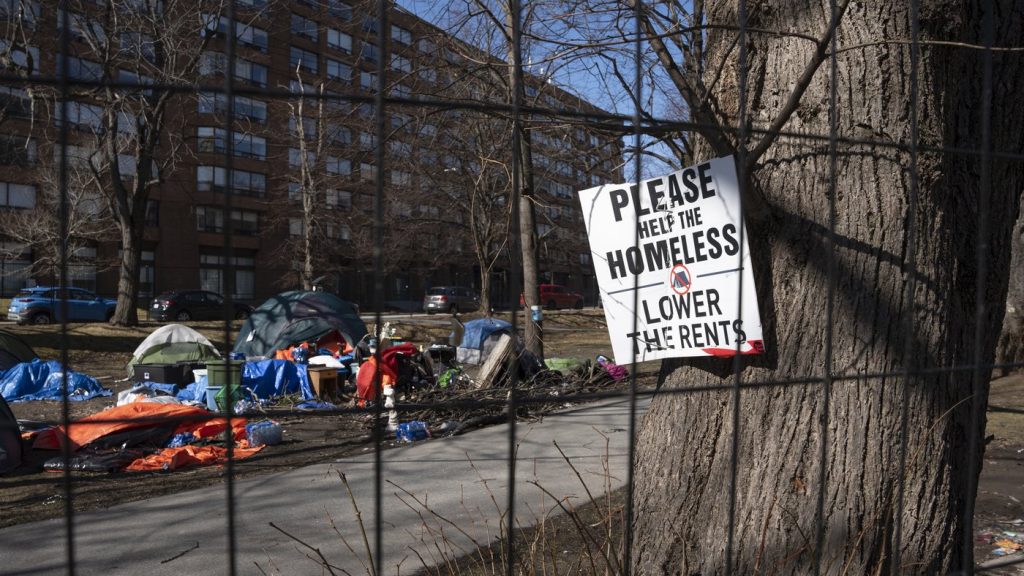A charred transformer on a Kyiv square makes for an unusual Ukraine war exhibit

Posted Sep 19, 2024 01:22:21 PM.
Last Updated Sep 19, 2024 01:31:32 PM.
KYIV, Ukraine (AP) — A charred transformer from one of Ukraine’s badly damaged power plants has come to a square in Kyiv’s city center — a stark reminder of the scale of destruction caused by Russian strikes on the country’s energy system.
The massive blackened hulk juxtaposed with a Ferris wheel further down Kontraktova Square — or Square of Contracts in honor of the place’s mercantile past — also serves as a contrast between the peacetime that was and the harsh reality of war in Ukraine.
The exhibition by private energy company DTEK, a nongovernmental organization and Ukraine’s Ministry of Energy opened on Thursday with a message urging people to feel “the pain and despair over the destroyed equipment” that energy workers experience first hand.
The organizers said that while they realize the transformer creates a somber atmosphere, their intention was not to “get anyone down” but to raise awareness of how difficult it is to bring light back to the houses in Ukraine after every Russian attack.
The exhibit is to stay in Kyiv for the next two months — by then, Ukraine will inch closer to what will likely be another winter of war.
The government has warned residents to brace for their toughest winter yet since Russia’s full-scale invasion began in February 2022 as airstrikes against the country’s beleaguered energy infrastructure intensify.
Russia continues to hammer Ukraine’s energy generation capacity, leaving the country heavily reliant on its three functioning nuclear power stations and electricity imports from European Union countries.
According to Energy Minister Herman Halushchenko, there have been over 1,000 attacks targeting the country’s power grid.
“There is no place, no region, no type of energy infrastructure that has not been affected by these attacks,” he said in a statement.
Ukrainians, meanwhile, have to cope with frequent nationwide blackouts, enduring hours without electricity. The shortages have exacerbated war fatigue as there appears no end of the conflict in sight.
Dmytro Tiuzin, a 37-year-old IT specialist who lives near Kontraktova Square, said he came to see the transformer in person on Thursday after seeing images of the installation on social media.
“I am worrying about it,” he said of the destruction of Ukraine’s power system. “I work remotely and I am very dependent on the electricity and internet.”
In the months between March and August, Russia launched nine coordinated attacks against electricity infrastructure in Ukraine, destroying approximately 9 gigawatts of electricity generation capacity, according to a U.N. report on Thursday.
The amount represents half of Ukraine’s energy needs during the winter months, the report by the United Nations Human Rights Monitoring Mission said.
“This winter will be bad enough with people likely having to cope with scheduled blackouts across the country,” said Danielle Bell, head of the mission. “Any additional attacks leading to prolonged electricity blackouts could have catastrophic consequences.”
Rebuilding the damage caused may take years. The Kyiv School of Economics in an assessment published in May estimated that restoring the energy sector will require $50 billion.
“This project is not meant to … make people feel depressed about how bad things are,” said Katya Taylor from the Port of Culture, an NGO that curated the exhibition.
“But rather, just to thank those people who are there for us,” she added.
Serhii, a worker from the power plant where the transformer was brought from, said he had spent 32 years of his life working there. The name of the power plant and Serhii’s family name could not be disclosed under government regulations due to security concerns.
“Sometimes tears come to my eyes, seeing this,” he said.
The destruction he witnessed also makes him angry and determined not give up, “no matter what.”
___
Follow AP’s coverage of the war in Ukraine at https://apnews.com/hub/russia-ukraine
Hanna Arhirova, The Associated Press








